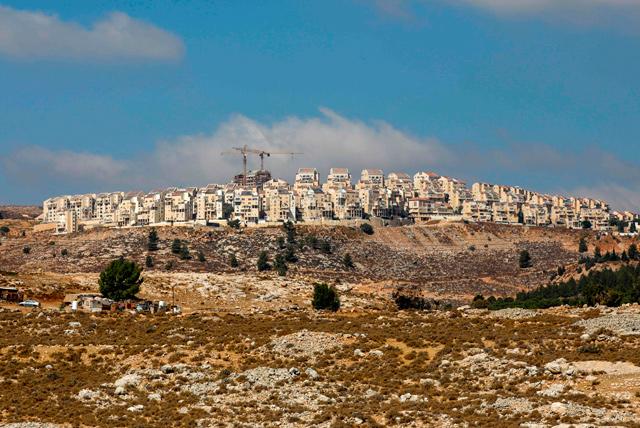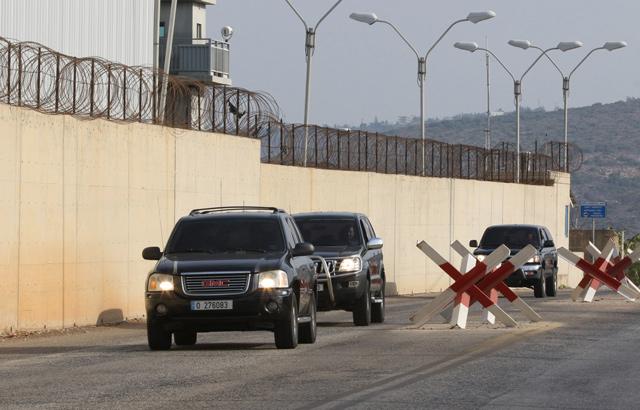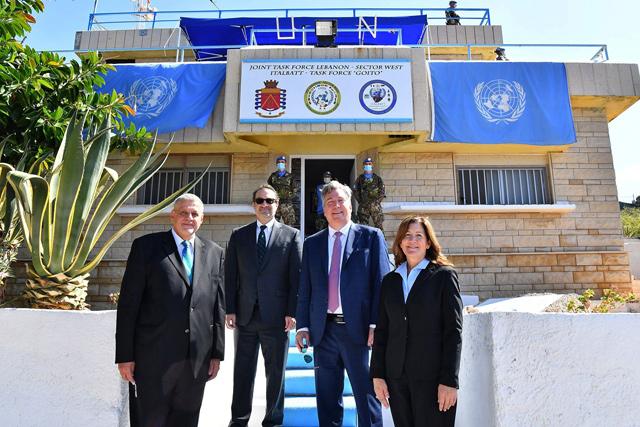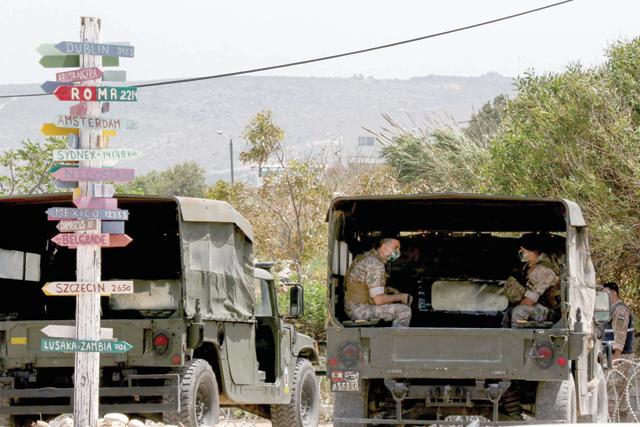You are here
Israel approves first West Bank settlement units since Gulf deals
By AFP - Oct 14,2020 - Last updated at Oct 14,2020

A photo taken on Wednesday shows Israeli construction cranes and excavators at a building site of new settlement units in the Israeli settlement of Kochav Yaakov, near the Palestinian city of Ramallah in the occupied West Bank (AFP photo)
OCUUPIED JERUSALEM — Israel approved 2,166 new settlement units across the occupied West Bank on Wednesday, official figures sent to AFP showed, ending an eight-month lull in settlement expansion.
The approvals came less than a month after the United Arab Emirates and Bahrain signed agreements to exchange relations with Israel, which in return pledged to freeze its plans to annex swathes of the West Bank.
NGO Peace Now said the settlement uptick signals Israel's rejection of Palestinian statehood and deals a blow to hopes of a wider Israeli-Arab peace.
It said that around 2,000 more units are expected to be approved on Thursday.
"Netanyahu is moving ahead at full steam towards solidifying the de facto annexation of the West Bank," it said in a statement ahead of Wednesday's decisions.
US President Donald Trump sees the Gulf accords as part of his broader initiative for Middle East peace.
But a controversial plan he unveiled in January gave US blessing to Israeli annexation of large chunks of the West Bank, including the settlement units, communities considered illegal under international law.
The latest settlement plans, for a total of more than 4,000 new homes, were on the agenda Wednesday and Thursday at a session of the top planning committee of Israel’s Civil Administration, the defence ministry body which oversees civil affairs in the occupied West Bank.
Details of the approvals were provided to AFP by the Civil Adminstration spokesman.
Peace Now noted that the plans were approved for submission by Benny Gantz, leader of the centrist Blue and White party who serves as defence minister in a coalition government led by the right-wing Netanyahu.
With Gantz’s participation, “Israel will be signalling to the world its bi-partisan support for the end to the concept of a two-state solution and a Palestinian state,” it said.
Netanyahu was embarked on a new settlement push “instead of taking advantage of the agreements with the Gulf states and promoting peace with the Palestinians”, it added.
Excluding annexed east Jerusalem, more than 450,000 Israelis live in settlement units in the occupied West Bank, alongside some 2.7 million Palestinians.
Among settlement units to grow under the latest approvals is Har Gilo, in the southern West Bank between Jerusalem and Bethlehem.
With a current population of about 1,600, Wednesday’s decision gave it 560 new homes.
Peace Now said that several wildcat settlement unit built without government authorisation are being approved retroactively.
Israel sees such approval as conferring legality.
Meanwhile, Lebanon and Israel, still technically at war, held unprecedented talks under UN and US auspices on Wednesday to settle a maritime border dispute and clear the way for oil and gas exploration.
The talks mark a “first step in the thousand-mile march towards the demarcation” of the sea frontier, Brig. Gen. Bassam Yassin, the head of Lebanon’s delegation, was quoted as saying in an army statement released after the session ended.
“Based on the higher interests of our country, we are looking to achieve a pace of negotiations that would allow us to conclude this dossier within reasonable time.”
Following years of US shuttle diplomacy, Lebanon and Israel this month said they had agreed to begin UN-brokered negotiations, in what Washington hailed a “historic” agreement.
The talks, held at a UN peacekeeping force base in the Lebanese border town of Naqura, lasted for around one hour. A second round of negotiations will be held on October 28, a Lebanese military source and the official National News Agency said.
The Naqura talks, which focused exclusively on the disputed sea frontier, came at a sensitive time as Lebanon, battered by multiple crises, hopes to continue exploring for oil and gas in a part of the Mediterranean also claimed by Israel.
Security was tight, with roads in the area blocked by UN peacekeepers and Lebanese troops, and helicopters flying overhead.
US envoy David Schenker facilitated the opening session along with US ambassador to Algeria John Desrocher, who was the mediator in the talks.
Israel said there would be “direct negotiations”, something Lebanese officials have denied.
Israel sent a six-member team, including the director general of its energy ministry, Prime Minister Benjamin Netanyahu’s foreign policy adviser and the head of the army’s strategic division.
Lebanon’s four-member delegation comprised two army officers, an official and a maritime border law expert.
Israel and Lebanon have no diplomatic relations and Wednesday’s talks were a rare official interaction.
Lebanon insists that the negotiations are purely technical and don’t involve any soft political normalisation with Israel.
Lebanon’s main Shiite parties Hizbollah and Amal issued a statement late Tuesday bemoaning the presence of civilians in the Lebanese negotiating team.
“This harms Lebanon’s position and interests... and amounts to giving in to the Israeli logic that seeks some form of normalisation,” they said.
Lebanon, mired in its worst economic crisis since the 1975-1990 civil war, is looking to settle the maritime border dispute so it can press its offshore quest for oil and gas.
In February 2018, Lebanon signed its first contract for drilling in two blocks in the Mediterranean with a consortium comprising energy giants Total, ENI and Novatek.
Exploration of one of the blocks is more controversial as part of it is located in an 860 square-kilometre area claimed by both Israel and Lebanon.
A senior source at Israel’s energy ministry told AFP that the border dispute “can be concluded hopefully in a few months time”.
“This is a limited effort to resolve a well-defined, limited problem,” he said.
“We have no illusions. Our aim is not to create here some kind of normalisation or peace process.”
Related Articles
NAQURA, Lebanon — Lebanon and Israel, still technically at war and with no diplomatic ties, launched a second round of maritime border talks
NAQURA, Lebanon — Lebanon and Israel, still technically at war, held unprecedented talks under UN and US auspices on Wednesday to settle a m
NAQURA, Lebanon — Lebanon and Israel resumed US-mediated negotiations over their disputed maritime border on Tuesday after a months-long hia



















